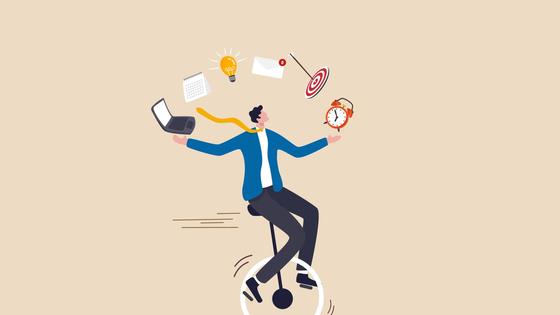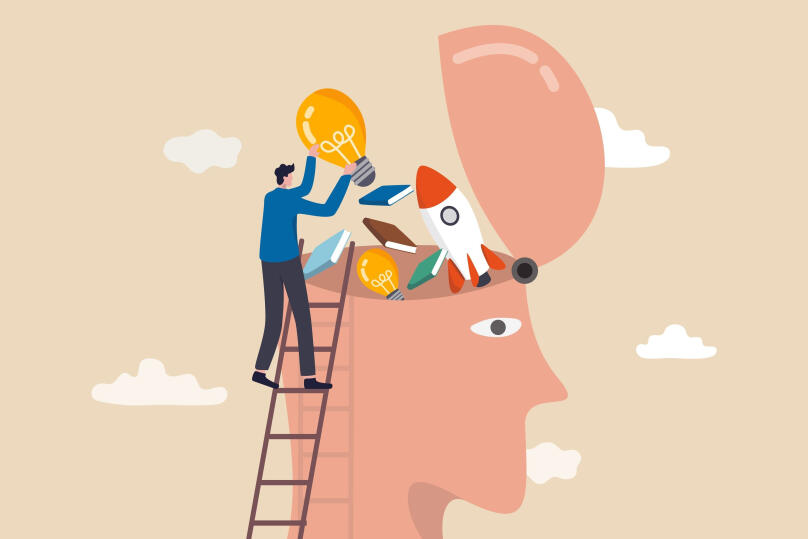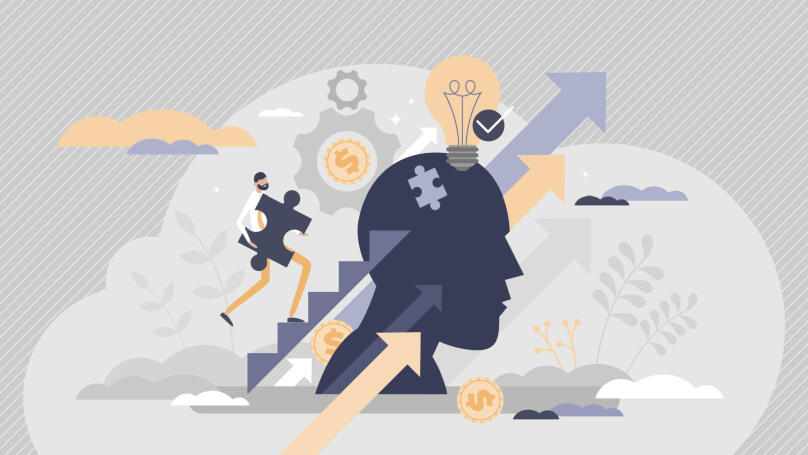What are meta-skills, and what is their purpose?
Nowadays, every newscaster says every professional needs to develop soft and hard skills to build a successful career and remain competitive in the labor market. But what exactly do we mean by these skill sets?

In simple terms, hard skills are those skills that are necessary for a particular profession, i.e., narrow professional knowledge and skills. But no matter where you work, hard skills alone will not do you any good: at best, without soft skills, they will not bring the expected benefits, and at worst, they risk undermining your professional reputation. But what are soft skills? They are universal "supportive" skills such as the ability to negotiate, teamwork, creative thinking, quick adaptation under challenging circumstances, etc. That is, we can consider soft skills over professional skills that help solve tasks, regardless of the place and scope of your work.
However, many people don't know that human skills - both "hard" and "soft" - are developed based on meta-skills, not on their own. So, let's discover what they are in practice and why they are necessary.
What are meta-skills, and how do they differ from soft skills?

Meta skills are the base of a person's knowledge, abilities, and experience upon which all soft and hard skills acquired throughout life get built. It is meta-skills that determine their realization and competent implementation.
The main difference between meta-skills is that they are much broader and more abstract than other categories of skills. Nevertheless, they are still often confused with soft skills. So, let's explain the difference with examples. Planning is undoubtedly a soft skill, but the ability to anticipate likely changes in the situation and adjust your plans in time is a meta-skill. Similarly, finding the correct information is only a soft skill, while the supporting meta-skill would be finding relationships between data and analyzing them.
In this way, meta-skills are considered foundational and provide a platform for developing and enhancing more narrowly focused and specific skills. To better understand how soft skills differ from meta-skills, we advise you on the program "Soft Skills for a Top Manager." During the course, you will learn the subtleties of strategic and analytical thinking, how to manage conflict in a team, and how to adapt your work processes to the new reality and increase your company's resilience.
What meta-skills everyone needs

There is still no clear and orderly classification of meta-skills, but there are a few universal meta-skills that everyone would benefit from having. Among them are awareness and mindfulness, objectivity, acceptance of oneself and others, and integrity of perception of reality. Let's dwell on each meta-skill in more detail and break down a few other critical basic meta-skills:
-
Emotional intelligence.
Emotional intelligence is the ability to recognize primarily one's own emotions as well as the emotions, feelings, desires, and motives of others. Developed emotional intelligence allows you to achieve your goals and succeed in your career and personal life. Indeed, emotional intelligence will help you interact with people competently, always keep the situation under control, solve problems of any complexity, and always remain productive. Although many coaches and personal growth psychologists refer to emotional intelligence as a soft skill, there is no denying that this skill is the foundation for developing additional skills and purely professional competencies. Additionally, it is essential for empathy, i.e., the ability to put yourself in another person's shoes and imagine their feelings and thoughts, which makes it easier to develop long-term relationships and achieve one's goals.
-
Awareness
You can better allocate your energy towards achieving the desired results by understanding what you are doing, why, what your end goal is, and whether it is worth your time and resources. We can define "awareness" as the coherence of your thoughts and actions. It can be tested by asking questions such as "What do I really want?", "Do I need this?", "What are my feelings right now and why?", "What caused me to react this way?" and so on. In addition, mindfulness will allow you to stay motivated and not lose yourself in the never-ending career race. And if something has gone wrong, being aware of your reactions will help you stop and analyze the situation. It also helps to stay in touch with reality and keep your feelings, emotions, and actions in check.
Learn more about becoming more aware and integrating mindfulness into your life in the course "Awareness Is a Lifestyle." During the course, you will learn effective practices for exploring your inner world and achieving balance, understand how to develop the skill of concentration for a better perception of reality, and learn exercises that help you achieve emotional balance.
-
Authenticity
A closely related skill is authenticity - the ability to preserve one's ego and identity, whatever the circumstances. In all activities, not only at work but in life, it is crucial to listen to yourself, make decisions based on your preferences, and always have a viewpoint that can only get changed by valid and verified information. Don't be afraid to express yourself the way you want to! Even if you may seem strange to someone, the main thing is to feel comfortable, and then your organism, naturalness, and genuineness will be attractive to colleagues, friends, and relatives.
-
Accepting yourself and others
This skill has a lot to do with mindfulness and authenticity because understanding yourself and your inner world allows you to accept all your shortcomings, assess your strengths and work on your weaknesses. The same applies to your environment. Remember to be tolerant and comfortable with rules, norms, and manners that differ from yours.
-
Integral perception of reality
This skill enables one to see the world, i.e., as a single picture, considering all its subtleties and peculiarities. Furthermore, integral thinking is made possible by thinking strategically, analyzing events, systematizing data, and finding connections. It allows you to make the right decisions, make long-term strategic plans and anticipate the development of events.
-
Objectivity
Objectivity allows adequately perceiving and assessing the situation, searching for ways out of it, and thinking over all possible risks. This meta-skill is especially important for managers of large companies responsible for the common cause. Therefore, emotions and personal assessments have no place here.
-
Continuous education or lifelong learning
It is a process of constant self-development, which is especially important for developing working hard skills. Lifelong learning has long been a necessity to maintain and develop all kinds of skills, remain in demand and competitive, and promote one's services in the labor market. This skill becomes the basis or foundation for developing adaptability and critical thinking. In addition, a consequence of lifelong learning is coping with the fear of making mistakes and dealing effectively with stress.
-
Growth mindset and personal productivity
This meta-skill is like the previous one and implies a continuous process of self-development. However, the essence of this ability is to see new opportunities in any, even the most hopeless, situations. It can be developed by trying to analyze events more often and asking questions such as, "What went wrong?", "How can this be fixed?", "What should I do to avoid making similar mistakes in the future? This is the most optimal and effective reflection method, working through the essence of the problem. Thus, the growth and productivity mindset allow you to develop additional soft and hard skills more quickly and efficiently.
-
Have the ability to embrace change in life.
This skill can make a living and work in a fast-paced and changing world much more manageable. However, it is essential to find a balance: maintain confidence in yourself and your competencies in the future and the relevance of your profession, but do not expect your professional tasks and responsibilities to be the same throughout life. Understand that absolutely everything is changeable. That is why accepting that change is inevitable is crucial, and facing it enthusiastically, not fearing or longing for the old days.
Lectera’s Online Courses by topic
Thus, meta-skills allow you to control not so much what happens around you as your reaction to it. Therefore, you can make the most of your circumstances and skills using your meta-skills. Remember that everything is interconnected, and to build a successful and stable career, you need well-known soft and hard skills and meta-skills. Above all, awareness will allow you to develop other meta-skills in the future. You can learn more about balancing your life and finding harmony in the course "The Path to a Content Life. Go Over Goals and Reach Them"
Share this with your friends via:
Latest News

In the UK, £23 million has been allocated for the expansion of the EdTech Testbed program — pilots of educational technologies in schools and colleges.

In the US, Tuskegee University announced the launch of Tuskegee University Global Campus (TUGC) — a new online platform for distance learning.

A significant stage in the development of the alternative education system has begun in West Northamptonshire in the UK: the County Council is actively calling on parents, guardians, and trustees to participate in shaping the future of this key area.

Outwoods Primary School in Atherstone, Warwickshire, having experienced deep sadness after the loss of their famous cat, Silla, has found solace in a new pet – a Maine Coon named Aloysius O’Hara.

In modern universities, artificial intelligence, and in particular ChatGPT, is rapidly transforming from a controversial tool into a full-fledged student assistant.












 Spring skills audit: what to remove, strengthen, and “sow” in learning
Spring skills audit: what to remove, strengthen, and “sow” in learning
 9 Career Mistakes Young Professionals Make
9 Career Mistakes Young Professionals Make
 £23 million allocated for the expansion of EdTech Testbed in the UK
£23 million allocated for the expansion of EdTech Testbed in the UK
 Test: How Psychologically Mature Are You? Check Your Inner Foundation.
Test: How Psychologically Mature Are You? Check Your Inner Foundation.
 Test. Check Your Social Media Dependency Level!
Test. Check Your Social Media Dependency Level!
 Test: What Business is Right For You?
Test: What Business is Right For You?
